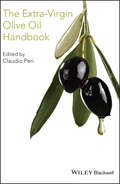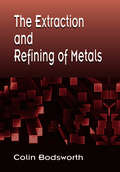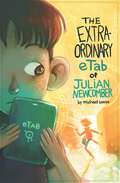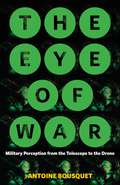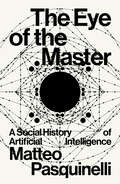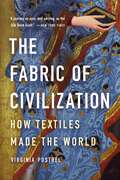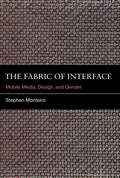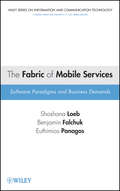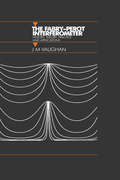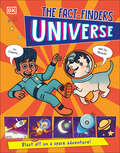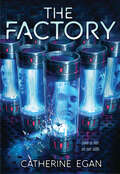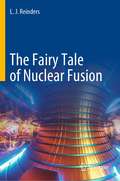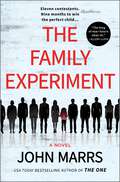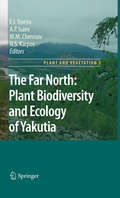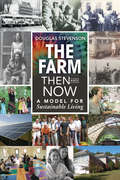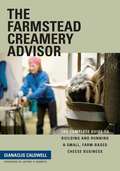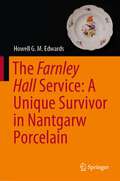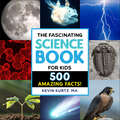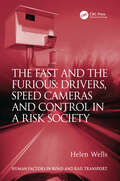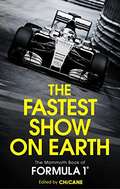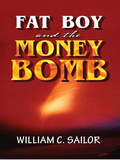- Table View
- List View
The Extra-Virgin Olive Oil Handbook
by Claudio PeriAccording to European legislation, extra virgin is the top grade of olive oils. It has a superior level of health properties and flavour compared to virgin and refined olive oils. Mediterranean countries still produce more than 85% of olive oil globally, but the constant increase of demand for extra virgin olive oil has led to new cultivation and production in other areas of the world, including California, Australia, China, South Africa and South America. At the same time, olive oil’s sensory properties and health benefits are increasingly attracting the attention and interest of nutritionists, food processors, manufacturers and food services. Progress and innovation in olive cultivation, harvesting and milling technologies as well as in oil handling, storage and selling conditions make it possible to achieve even higher quality levels than those stipulated for extra virgin oils. As a consequence, a new segment – excellent extra virgin olive oils – is increasingly attracting the attention of the market and earning consumers’ preference. The Extra-Virgin Olive Oil Handbook provides a complete account of olive oil’s composition, health properties, quality, and the legal standards surrounding its production. The book is divided into convenient sections focusing on extra virgin olive oil as a product, the process by which it is made, and the process control system through which its quality is assured. An appendix presents a series of tables and graphs with useful data, including conversion factors, and the chemical and physical characteristics of olive oil. This book is aimed at people involved in the industrial production as well as in the marketing and use of extra virgin olive oil who are looking for practical information, which avoids overly academic language, but which is still scientifically and technically sound. The main purpose of the handbook is to guide operators involved in the extra virgin olive oil chain in making the most appropriate decisions about product quality and operating conditions in the production and distribution processes. To these groups, the most important questions are practical ones of why, how, how often, how much will it cost, and so on. The Extra-Virgin Olive Oil Handbook will provide the right answers to these key practical considerations, in a simple, clear yet precise and up-to-date way.
The Extraction and Refining of Metals (Materials Science And Technology Ser.)
by Colin BodsworthThe Extraction and Refining of Metals provides a novel approach to the science and technology of both ferrous and non-ferrous metal production. Rather than the traditional treatment in which one metal at a time is considered, this new approach, which examines several metals at a time, reveals more clearly the versatility and limitations of each of the main types of process. The restrictions imposed on the selection of the process routes by thermodynamic and kinetic factors and by economic and environmental constraints are examined in detail. The conservation of energy and materials is emphasized and illustrated by the description of new and improved extraction methods.The types of mathematical models that are being developed for computer control of production operations are indicated, and worked examples demonstrate relevant thermodynamic and mass balance calculations.
The Extraordinary eTab of Julian Newcomber
by Michael SeeseJoin Julian Newcomber on an extraordinary time travel adventure with The Extraordinary eTab of Julian Newcomber. When Julian's inventor father introduces him to his latest invention, a tablet that allows the user to travel through time, his world is turned upside down. As Julian and his family navigate the challenges of their new home, Julian also has a big problem to solve for his Future Self.This middle grade novel combines elements of science fiction, family dynamics, and the excitement of time travel, making it a must-read for young readers who love a good adventure. Get ready to be transported through time and space with Julian and his extraordinary eTab!
The Eye of War: Military Perception from the Telescope to the Drone
by Antoine BousquetHow perceptual technologies have shaped the history of war from the Renaissance to the present From ubiquitous surveillance to drone strikes that put &“warheads onto foreheads,&” we live in a world of globalized, individualized targeting. The perils are great. In The Eye of War, Antoine Bousquet provides both a sweeping historical overview of military perception technologies and a disquieting lens on a world that is, increasingly, one in which anything or anyone that can be perceived can be destroyed—in which to see is to destroy. Arguing that modern-day global targeting is dissolving the conventionally bounded spaces of armed conflict, Bousquet shows that over several centuries, a logistical order of militarized perception has come into ascendancy, bringing perception and annihilation into ever-closer alignment. The efforts deployed to evade this deadly visibility have correspondingly intensified, yielding practices of radical concealment that presage a wholesale disappearance of the customary space of the battlefield. Beginning with the Renaissance&’s fateful discovery of linear perspective, The Eye of War discloses the entanglement of the sciences and techniques of perception, representation, and localization in the modern era amid the perpetual quest for military superiority. In a survey that ranges from the telescope, aerial photograph, and gridded map to radar, digital imaging, and the geographic information system, Bousquet shows how successive technological systems have profoundly shaped the history of warfare and the experience of soldiering. A work of grand historical sweep and remarkable analytical power, The Eye of War explores the implications of militarized perception for the character of war in the twenty-first century and the place of human subjects within its increasingly technical armature.
The Eye of the Master: A Social History of Artificial Intelligence
by Matteo PasquinelliA social history of AI that finally reveals its roots in the spatial computation of industrial factories and the surveillance of collective behaviour.What is AI? A dominant view describes it as the quest "to solve intelligence," a solution supposedly to be found in the secret logic of the mind or in the deep physiology of the brain, such as in its complex neural networks.The Eye of the Master argues, to the contrary, that the inner code of AI is shaped not by the imitation of biological intelligence, but the intelligence of labour and social relations, as it is found in Babbage's "calculating engines" of the industrial age as well as in the recent algorithms for image recognition and surveillance.The idea that AI may one day become autonomous (or "sentient", as someone thought of Google's LaMDA) is pure fantasy. Computer algorithms have always imitated the form of social relations and the organisation of labour in their own inner structure and their purpose remains blind automation.The Eye of the Master urges a new literacy on AI for scientists, journalists and new generations of activists, who should recognise that the "mystery" of AI is just the automation of labour at the highest degree, not intelligence per se.
The Fabric of Civilization: How Textiles Made the World
by Virginia PostrelFrom Paleolithic flax to 3D knitting, explore the global history of textiles and the world they weave together in this enthralling and educational guide.The story of humanity is the story of textiles -- as old as civilization itself. Since the first thread was spun, the need for textiles has driven technology, business, politics, and culture.In The Fabric of Civilization, Virginia Postrel synthesizes groundbreaking research from archaeology, economics, and science to reveal a surprising history. From Minoans exporting wool colored with precious purple dye to Egypt, to Romans arrayed in costly Chinese silk, the cloth trade paved the crossroads of the ancient world. Textiles funded the Renaissance and the Mughal Empire; they gave us banks and bookkeeping, Michelangelo's David and the Taj Mahal. The cloth business spread the alphabet and arithmetic, propelled chemical research, and taught people to think in binary code.Assiduously researched and deftly narrated, The Fabric of Civilization tells the story of the world's most influential commodity.
The Fabric of Interface: Mobile Media, Design, and Gender (The\mit Press Ser.)
by Stephen MonteiroTracing the genealogy of our physical interaction with mobile devices back to textile and needlecraft culture. For many of our interactions with digital media, we do not sit at a keyboard but hold a mobile device in our hands. We turn and tilt and stroke and tap, and through these physical interactions with an object we make things: images, links, sites, networks. In The Fabric of Interface, Stephen Monteiro argues that our everyday digital practice has taken on traits common to textile and needlecraft culture. Our smart phones and tablets use some of the same skills—manual dexterity, pattern making, and linking—required by the handloom, the needlepoint hoop, and the lap-sized quilting frame. Monteiro goes on to argue that the capacity of textile metaphors to describe computing (weaving code, threaded discussions, zipped files, software patches, switch fabrics) represents deeper connections between digital communication and what has been called “homecraft” or “women's work.” Connecting networked media to practices that seem alien to media technologies, Monteiro identifies handicraft and textile techniques in the production of software and hardware, and cites the punched cards that were read by a loom's rods as a primitive form of computer memory; examines textual and visual discourses that position the digital image as a malleable fabric across its production, access, and use; compares the digital labor of liking, linking, and tagging to such earlier forms of collective production as quilting bees and piecework; and describes how the convergence of intimacy and handiwork at the screen interface, combined with needlecraft aesthetics, genders networked culture and activities in unexpected ways.
The Fabric of Mobile Services
by Thimios Panagos Benjamin Falchuk Shoshana LoebWhat is the future of mobile services?In order for mobile services to achieve the scale, scope, and agility required to keep them relevant and successful, a number of fundamental technical and business challenges need to be addressed. The Fabric of Mobile Services provides readers with a solid understanding of the subject, covering short-and long-term considerations and future trends that will shape thistechnological evolution.Beginning with an introduction that brings readers up to speed on the mobile services environment, the book covers:The business of mobile servicesMobile user location as a service enablerSimplicity and user experienceThe always-on infrastructure challengeUnderpinnings of mobile opportunismDesign patterns for mobile servicesAdvanced services of today and tomorrowComplemented with case studies and end-of-chapter summaries that help facilitate readers' comprehension, The Fabric of Mobile Services is essential reading for researchers, engineers, software engineers, students, and anyone working in the mobile services industry.
The Fabry-Perot Interferometer: History, Theory, Practice and Applications
by M VaughanThe Fabry-Perot Interferometer: History, Theory, Practice and Applications presents an invaluable introduction to the Fabry-Perot interferometer, including a brief overview of its history, a look at its applications, and plenty of practical advice on how to use the instrument.
The Fact-Finders Universe: Blast Off on a Space Adventure! (The Fact-Finders)
by DKExplore the wonders of the Universe in this fun, non-fiction graphic novel packed with fun facts and engaging characters.Learn about the Asteroid and Kuiper Belts, which exist between planets and even contain objects, in this comic book for children aged 6-8.Filled with bite-sized information, colorful illustrations, and a fun story, this graphic novel will engage every budding science enthusiast and space explorer. With the help of the Fact-Finders, children will stock up on their space knowledge and will understand our place in the solar system.This educational graphic novel for kids offers: Age-appropriate vocabulary that explains a wide range of both familiar and unfamiliar topics and terms.Fun and engaging characters and facts provided in in a conversational style for an immersive learning experience.Content by award-winning author Tracey Turner which has been checked by experts to ensure all information is credible.Grab your space suit, hop on board the Interstellar Sausage, and zoom into space with space experts Cosmo and Quark. Find out all about asteroids, shooting stars, black holes, and the real-life astronauts who explore our solar system.Why do we have seasons and moon phases? Is there weather on other planets? Which animals have had a chance to explore space? Find out all this and much more in this guide to the Universe beyond Earth!More in the seriesFact-Finders is a fun, non-fiction graphic novel series that teaches kids all about a variety of topics on the world around them. If you enjoyed Fact-Finders Universe, why not try Fact-Finders Ocean to discover what goes on beneath the waves?
The Factory
by Catherine EganStep inside the Factory in this suspenseful exploration of power, exploitation, and the nature of time that Kirkus calls a "gripping, fast-paced story with a cliffhanger ending," and a "complex beginning to what will surely be a sought-after series"!Thirteen-year-old Asher Doyle is no stranger to misfortune. Bullied at school and struggling with problems at home, he dreams of the day he can leave it all behind him. That's when he receives an unexpected opportunity: an invitation to join the Factory -- a top-secret research facility that's supposedly developing renewable energy -- and Asher will be paid handsomely for his participation. It seems like the answer to all his problems.But not everything is as it seems at the Factory. The other kids in the program are tired and sullen, almost as if they've had the life sucked out of them, and the staff members are clearly hiding something. What's more, Asher discovers he wasn't chosen at random; someone in the program desperately wants him to participate. Asher can't help but feel that whatever the Factory is doing, it's not what he or any of the other kids signed up for.To Asher's horror, it turns out that the Factory isn't developing renewable energy at all. So what is the Factory up to, more important, why? As conditions in the Factory worsen, Asher must team up with the other kids to uncover the sinister truth behind the experiment -- and his personal connection to it -- before someone gets seriously hurt.
The Fairy Tale of Nuclear Fusion
by L. J. ReindersThis carefully researched book presents facts and arguments showing, beyond a doubt, that nuclear fusion power will not be technically feasible in time to satisfy the world's urgent need for climate-neutral energy.The author describes the 70-year history of nuclear fusion; the vain attempts to construct an energy-generating nuclear fusion power reactor, and shows that even in the most optimistic scenario nuclear fusion, in spite of the claims of its proponents, will not be able to make a sizable contribution to the energy mix in this century, whatever the outcome of ITER. This implies that fusion power will not be a factor in combating climate change, and that the race to save the climate with carbon-free energy will have been won or lost long before the first nuclear fusion power station comes on line.Aimed at the general public as well as those whose decisions directly affect energy policy, this book will be a valuable resource for informing future debates.
The Family Experiment: A Novel
by John MarrsFrom the acclaimed author of The One and The Marriage Act, The Family Experiment is a dark and brilliant speculative thriller about families: real and virtual. Some families are virtually perfect… The world's population is soaring, creating overcrowded cities and an economic crisis. And in the UK, the breaking point has arrived. A growing number of people can no longer afford to start families, let alone raise them. But for those desperate to experience parenthood, there is an alternative. For a monthly subscription fee, clients can create a virtual child from scratch who they can access via the metaverse and a VR headset. To launch this new initiative, the company behind Virtual Children has created a reality TV show called The Substitute. It will follow ten couples as they raise a virtual child from birth to the age of eighteen but in a condensed nine-month time period. The prize: the right to keep their virtual child, or risk it all for the chance of a real baby… Set in the same universe as John Marrs's bestselling novel The One and The Marriage Act, The Family Experiment is a dark and twisted thriller about the ultimate Tamagotchi—a virtual baby.
The Family Lawyer
by James Patterson<P>From the world's #1 bestselling writer--3 pulse-pounding novels in one book! <P>THE FAMILY LAWYER with Robert Rotstein: Matthew Hovanes is living a parent's worst nightmare: his young daughter is accused of bullying another girl into suicide. But this loving father is also a skilled criminal defense attorney. And something here doesn't add up... <P>NIGHT SNIPER with Christopher Charles: Cheryl Mabern is the NYPD's most brilliant detective--and the most damaged. Now she must confront her darkest fears to stop a calculating killer committing random murders. <P>THE GOOD SISTER with Rachel Howzell Hall: Her beloved sister's cheating husband has been found dead. Now, Dani Lawrence must decide if she will help the investigation that could put her sister away...or obstruct it by any means necessary. <P><b>A New York Times Bestseller</b>
The Far North:
by A. P. Isaev Elena I. Troeva M. M. Cherosov N. S. KarpovOutside Russia very little is known about the terrestrial ecology, vegetation, biogeographical patterns, and biodiversity of the enormously extensive ecosystems of Yakutia, Siberia. These systems are very special in that they function on top of huge layers of permafrost and are exposed to very severe and extreme weather conditions, the range between winter and summer temperatures being more than 100 degrees C. The soils are generally poor, and human use of the vegetation is usually extensive. Main vegetation zones are taiga and tundra, but Yakutia also supports a special land and vegetation form, caused by permafrost, the alas: more or less extensive grasslands around roundish lakes in taiga. All these vegetation types will be described and their ecology and ecophysiological characteristics will be dealt with. Because of the size of Yakutia, covering several climatic zones, and its extreme position on ecological gradients, Yakutia contains very interesting biogeographical patterns, which also will be described. Our analyses are drawn from many years of research in Yakutia and from a vast body of ecological and other literature in Russian publications and in unpublished local reports. The anthropogenic influence on the ecosystems will be dealt with. This includes the main activities of human interference with nature: forestry, extensive reindeer herding, cattle and horse grazing, etc. Also fire and other prominent ecological factors are dealt with. A very important point is also the very high degree of naturalness that is still extant in Yakutia's main vegetation zones.
The Farm Then and Now
by Douglas StevensonIn the Summer of Love in San Francisco's Haight-Asbury, a charismatic young hippie by the name of Stephen Gaskin launched "Monday Night Class"--a weekly event which drew together an eclectic mix of truth-seekers and flower children. Soon the class became a caravan, and after touring the country this colorful crew decided to seek a plot of land and found a commune based on their shared values. Thus was born The Farm in Summertown, Tennessee.The Farm Then and Now presents the story of a group that has defied the odds, blending idealism with a practical approach to intentional community and creating a model for sustainable living. Just as the Monday Night Classes taught students to open their hearts and minds, The Farm continues as a School of Change, demonstrating ways to operate collectively in terms of: Land, water, and stewardship Health care, building, and infrastructure Cooperation, compassion, and spiritual valuesFor humans to survive as a species, we must relearn the skills needed to work together; the lessons of The Farm can be applied in any community or organization. The Farm Then and Now addresses both the successes and shortcomings of this unique ongoing social experiment, showing how what was once the largest commune in the world has evolved into an exceptional example of living lightly on the earth.Douglas Stevenson has been a member of The Farm Community for forty years. His company Green Life Retreats hosts the Farm Experience Weekend and other instructional seminars about sustainable living.
The Farmstead Creamery Advisor
by Gianaclis CaldwellThere has never been a better time to be making and selling great cheese. People worldwide are consuming more high-quality, handmade cheese than ever before. The number of artisan cheesemakers has doubled in recent years, and many of the industry's newcomers are "farmstead" producers- those who work only with the milk of their own animals. Today, more than ever before, the people who choose to become farmer-cheesemakers need access to the knowledge of established cheese artisans who can help them build their dream. Few career choices lead to such extremes of labor, emotion, and monetary challenge. InThe Farmstead Creamery Advisor, respected cheesemaker, instructor, and speaker Gianaclis Caldwell walks would-be producers through the many, and often confusing, steps and decisions they will face when considering a career in this burgeoning cottage industry. This book fills the gap that exists between the pasture and cheese plate. It goes far beyond issues of caring for livestock and basic cheesemaking, explaining business issues such as: Analyzing your suitability for the career Designing and building the cheese facility Sizing up the market Negotiating day-to-day obstacles Ensuring maximum safety and efficiency Drawing from her own and other cheesemakers' experiences, Caldwell brings to life the story of creating a successful cheesemaking business in a practical, organized manner. Absolutely essential for anyone interested in becoming a licensed artisan cheesemaker,The Farmstead Creamery Advisorwill also appeal to the many small and hobby-farm owners who already have milking animals and who wish to improve their home dairy practices and facilities.
The Farmstead Egg Guide & Cookbook
by Terry GolsonA James Beard Award-nominated food writer “offers an instructive guide to raising hens as well as a delightful collection of egg recipes” (Publishers Weekly).From the cities to the suburbs, backyards are filled with the sounds of clucking like never before as more people invest in having a closer connection to the food they eat and discover the rewards (and challenges) of raising chickens and cultivating their own fresh eggs. Whether you’ve embraced the local food movement or just love that farm-fresh flavor, The Farmstead Egg Guide & Cookbook is the perfect book for you and your flock. Inside, you’ll find expert advice on caring for your chickens, along with 100 delicious and diverse recipes. You’ll notice a difference in your scrambled eggs, omelets, and quiches, as well as in savory and sweet soufflés, tarts, puddings, and pies. With The Farmstead Egg Guide & Cookbook, you’ll never run out of delectable ways to enjoy your eggs for any meal of the day. This book will inspire you so that you to have the freshest and best eggs on your table and, if you’re game, the experience of keeping hens in your backyard.“Golson provides a full-circle cookbook for those who won’t end up caring if the chicken or egg came first. This comprehensive volume is recommended for all collections, especially those with a community interest in urban farming.” —Library Journal (starred review)
The Farnley Hall Service: A Unique Survivor in Nantgarw Porcelain
by Howell G. EdwardsThis book covers the discovery and the results of the analytical study of the composition of the Farnley Hall service, involving both the embossed moulding and the decorative compositions. The discovery of this missing porcelain service, which was manufactured 200 years ago, is a modern detective story in the preservation of cultural heritage, whilst its physical analysis has identified some new data that need to be incorporated into correcting and expanding the literature that is used for the differentiation of porcelains by ceramic historians and museum conservators. The importance of the Farnley Hall service discovery is that it provides the only example of such a Nantgarw Porcelain service that still resides in its original place of usage from 200 years ago: it is therefore a unique example and is a very important part of our national cultural heritage. It provides an illustration of the data that can be accessed from the application of inductive reasoning to elicit novel information about a manufactory whose work books no longer exist and its comparison with contemporary manufactories in the late eighteenth and early nineteenth centuries. The concepts can be appreciated by experts and also by non-technical readers. This is the first time that such a detailed research approach has been adopted for any comparative ceramic project. The book is therefore relevant for a specialist and non-specialist readership, including museum ceramics curators and collectors of the genre.
The Fascinating Science Book for Kids: 500 Amazing Facts! (Fascinating Facts)
by Kevin KurtzDiscover 500 fascinating facts about everything from astronomy to zoology in this amazing science book for kids age 9 to 12!Do you love dinosaurs and dolphins, mountains and meteors? The Fascinating Science Book for Kids has all of that and more! This trivia-packed book includes 500 stupendous science facts that offer hours of exploration. Alongside full-color pictures on every page, you'll find weird and wonderful facts about topics like prehistoric life, the deep sea, weather, minerals, the human body, the solar system—and even your own backyard!In this engaging book of science fun facts for kids, you'll learn amazing things like:Scientists have evidence that tiny diamonds sometimes fall from the sky on Neptune.The giant squid has a brain shaped like a donut.Some bacteria species generate electricity when they breathe and can even power a battery.Get a heaping helping of the science facts kids love with The Fascinating Science Book for Kids — one of the best in kids' educational books!
The Fast Forward MBA in Project Management: The Comprehensive, Easy-to-Read Handbook for Beginners and Pros (Fast Forward MBA Series)
by Eric VerzuhThe all-inclusive guide to exceptional project management that is trusted by hundreds of thousands of readers—now updated and revised The Fast Forward MBA in Project Management: The Comprehensive, Easy to Read Handbook for Beginners and Pros, 6th Edition is a comprehensive guide to real-world project management methods, tools, and techniques. Practical, easy-to-use, and deeply thorough, this book gives you the answers you need now. You'll find cutting-edge ideas and hard-won wisdom of one of the field's leading experts, delivered in short, lively segments that address common management issues. Brief descriptions of important concepts, tips on real-world applications, and compact case studies illustrate the most sought-after skills and pitfalls you should watch out for. This sixth edition now includes: A brand-new chapter on project quality A new chapter on managing media, entertainment, and creative projects A new chapter on the project manager’s #1 priority: leadership A new chapter with the most current practices in Change Management Current PMP certification study tips Readers of The Fast Forward MBA in Project Management also receive access to new video resources available at the author’s website. The book teaches readers how to manage and deliver projects on-time and on-budget by applying the practical strategies and concrete solutions found within. Whether the challenge is finding the right project sponsor, clarifying project objectives, or setting realistic schedules and budget projections, The Fast Forward MBA in Project Management shows you what you need to know, the best way to do it, and what to watch out for along the way.
The Fast and The Furious: Drivers, Speed Cameras and Control in a Risk Society (Human Factors in Road and Rail Transport)
by Helen WellsThe Fast and The Furious: Drivers, Speed Cameras and Control in a Risk Society presents a sociological and criminological perspective critical to understanding the driver's role at the centre of road safety interventions. Such an approach is, it is argued, as crucial to an understanding of attempts to reduce road crashes, deaths and injuries as approaching such questions from an engineering or educational perspective. The book offers an explanation for the continued debate about one road safety intervention - the speed camera - by situating that debate within contemporary literature about the 'risk society' (Beck, 1992) and more broadly understood experiences of risk faced on a daily basis by drivers. Rather than a focus on risk as something that can be objectively assessed, measured and managed separately from the social context in which it is encountered, it suggests that 'risk' is something that permeates this particular debate from every angle. The book achieves its aims by utilising sociological and criminological perspectives to investigate issues such as: - the social context in which it is possible for drivers to reject official scientific expertise about crash causation and camera effectiveness - the self-defined 'respectability' of the population being problematised and its juxtaposition with a 'proper' police focus on 'real criminals' - the reconceptualisation of law-breaking as risk-taking rather than inherently 'wrong' behaviour and its consequences for the enforcement of laws based on risk assessment - the experience of being controlled by technology and of receiving what is essentially 'automated justice'. These and other issues are explored and suggested as illuminating of both the real concerns underpinning this debate and potentially instructive for future attempts to control risky behaviour both within and beyond a road safety context.
The Fastest Show on Earth: The Mammoth Book of Formula 1
by ChicaneIn the quest for ultimate speed, Formula One combines human drama, cutting-edge technological innovation and high-stakes finance in a thrilling global circus watched by half a billion avid fans.The Fastest Show on Earth brings the FIA Formula One World Championship vividly to life for everyone from first-time race-goers to avid fans wanting to delve even further into the Fastest Show on Earth. Experts from within the industry share their insights into the effect that recent revolutionary changes to regulations have had on engines, tyres, brakes, aerodynamics, fuel, safety and the use of data in a whole new era of racing. Races, rule changes and drivers are brought up to date in a comprehensive guide to the world's most viewed sport.This book is a superb technical guide, including circuit diagrams, team histories, driver profiles and a comprehensive glossary that offers fascinating insights into the inner workings of a world that offers everything from tragedy to thrilling triumph.From the cut-throat intrigue of the Piranha Club to the unsung heroism of pit lane, every aspect of Formula One is covered in compelling detail.Much more than just a sport and far more than a business, Formula One is a world of larger-than-life personalities and razor-sharp business people. The book also offers a window into the new Liberty Media regime and what the future may hold for the sport under new ownership.This extensive guide includes the official FIA circuit diagrams, team histories, driver profiles, circuit facts, technical braking profiles, a special section on the history of Formula One in the US and the most comprehensive glossary of Formula One terms ever compiled.
The Fat Boy and the Money Bomb
by William C. SailorThis is the story of a young whistleblower, Stanley Hall, who ends up changing "business as usual" at a nuclear weapons laboratory. His story, prior to being in the bomb business, includes periods of euphoria and recklessness followed by extreme grief and remorse. In his darkest hours he becomes concerned with greater moral good. At the Fairfield National Laboratory, he can either "play nice" or risk his career by reporting the fraud and abuse that is in front of him. His dilemma is further complicated by the close personal relationships that he has with some of the people he works with, whom he considers to be his friends.
